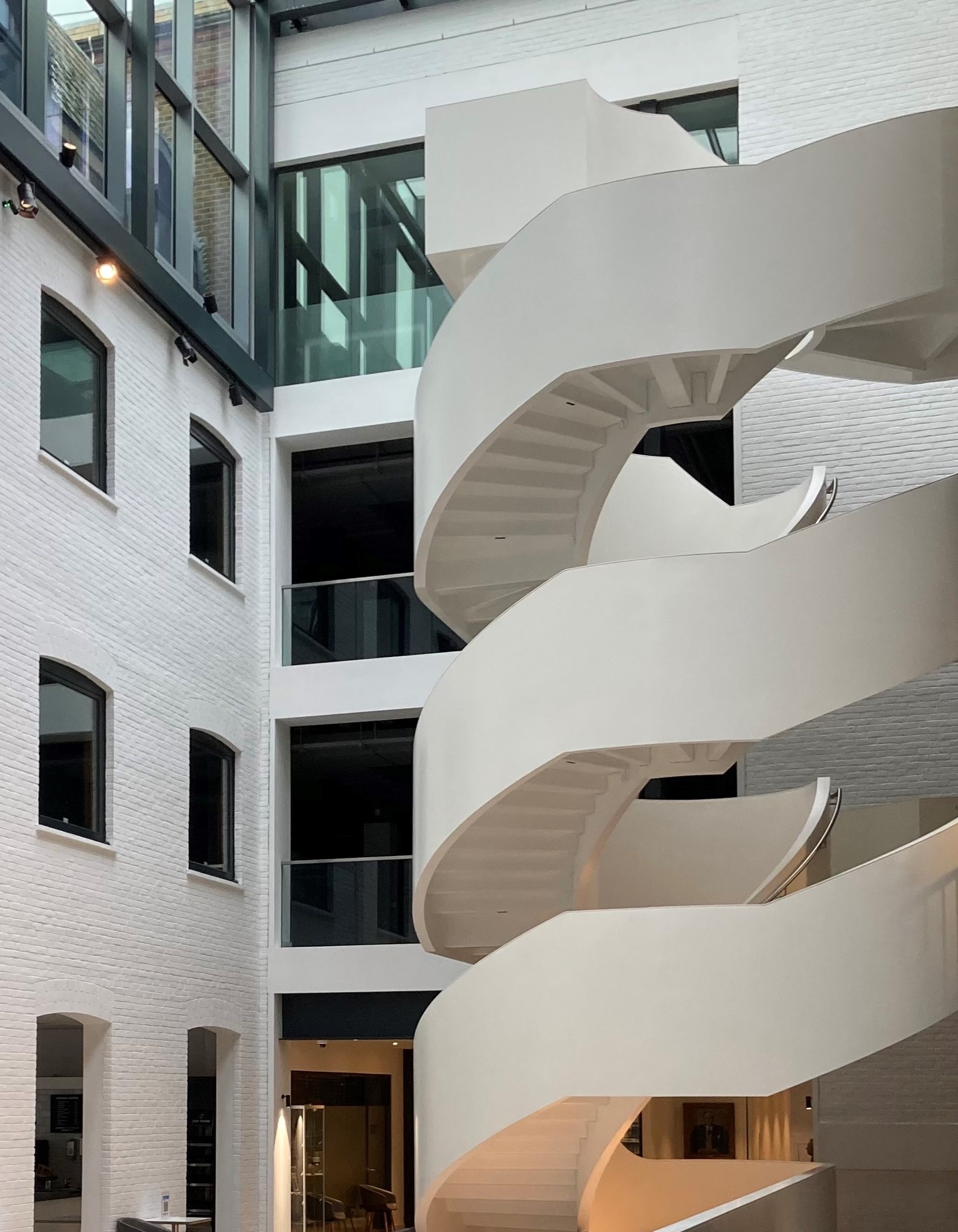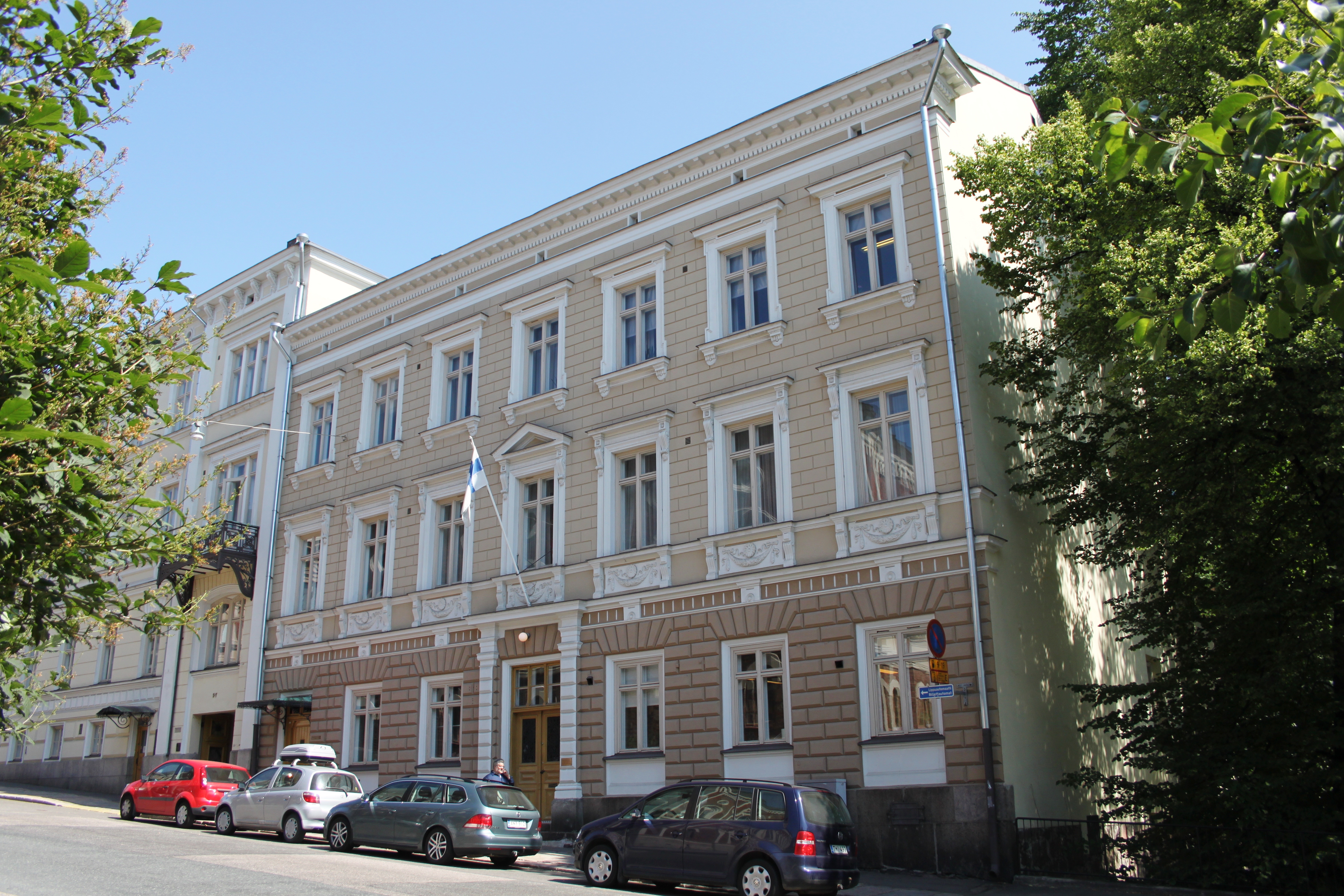|
Markku Seppälä
Markku Tapio Seppälä (b. 16 May 1936, Helsinki) is a Finnish physician specialising in obstetrics and gynecology. He graduated with a licentiate in medicine in 1964 and a doctorate in medicine and surgery in 1965.Markku Seppälä, Suomen lääkärit 2012, Suomen Lääkäriliitto, Helsinki 2012, page 1202 During his research activities that began in 1962, Seppälä has published approx. 500 peer-reviewed studies in international series, including collaborations with two Nobel Prize winners in medicine or physiology (Frederick Chapman Robbins and Robert G. Edwards). His other scholarly output includes 5 books, and around 100 review articles, securing him international acclaim and positioning him among the top researchers in his field as per the Science Citation Index (SCI) in 2002. Seppälä was part of the team that delivered Finland's first IVF baby in 1984. Seppälä was awarded the Matti Äyräpää prize in 1981 for his research on fetal development proteins. [...More Info...] [...Related Items...] OR: [Wikipedia] [Google] [Baidu] |
Helsinki
Helsinki ( or ; ; sv, Helsingfors, ) is the Capital city, capital, primate city, primate, and List of cities and towns in Finland, most populous city of Finland. Located on the shore of the Gulf of Finland, it is the seat of the region of Uusimaa in southern Finland, and has a population of . The Helsinki urban area, city's urban area has a population of , making it by far the List of urban areas in Finland by population, most populous urban area in Finland as well as the country's most important center for politics, education, finance, culture, and research; while Tampere in the Pirkanmaa region, located to the north from Helsinki, is the second largest urban area in Finland. Helsinki is located north of Tallinn, Estonia, east of Stockholm, Sweden, and west of Saint Petersburg, Russia. It has History of Helsinki, close historical ties with these three cities. Together with the cities of Espoo, Vantaa, and Kauniainen (and surrounding commuter towns, including the eastern ... [...More Info...] [...Related Items...] OR: [Wikipedia] [Google] [Baidu] |
Aarne Koskimies
Aarne as a surname may refer to: * Antti Aarne (1867–1925), Finnish folklorist *Els Aarne (1917–1995), Estonian composer *Johan Victor Aarne (1863–1934), Finnish metalsmith As a given name it may refer to: *Aarne Ahi (born 1943), Estonian animator and animated film director *Aarne Arvonen (1897–2009), Finnish supercentenarian *Aarne Blick (1894–1964), Finnish lieutenant general *Aarne Castrén (1923–1997), Finnish sailor *Aarne Ermus (born 1966), Estonian Defense Force colonel *Aarne Ervi (1910–1977), Finnish architect *Aarne Haapakoski (1904–1961), Finnish pulp writer *Aarne Heikinheimo (1894–1938), Finnish major general *Aarne Hermlin (1940–2007), Estonian chess player *Aarne Honkavaara (1924–2016), Finnish ice hockey player and coach * Aarne Hytönen (1901–1972), Finnish architect * Aarne Juutilainen (1904–1976), Finnish army captain * Aarne Kainlauri (born 1915), Finnish former steeplechaser * Aarne Kallberg (1891–1945), Finnish long-distance runne ... [...More Info...] [...Related Items...] OR: [Wikipedia] [Google] [Baidu] |
University Of Helsinki Alumni
A university () is an institution of higher (or tertiary) education and research which awards academic degrees in several academic disciplines. Universities typically offer both undergraduate and postgraduate programs. In the United States, the designation is reserved for colleges that have a graduate school. The word ''university'' is derived from the Latin ''universitas magistrorum et scholarium'', which roughly means "community of teachers and scholars". The first universities were created in Europe by Catholic Church monks. The University of Bologna (''Università di Bologna''), founded in 1088, is the first university in the sense of: *Being a high degree-awarding institute. *Having independence from the ecclesiastic schools, although conducted by both clergy and non-clergy. *Using the word ''universitas'' (which was coined at its foundation). *Issuing secular and non-secular degrees: grammar, rhetoric, logic, theology, canon law, notarial law.Hunt Janin: "The university ... [...More Info...] [...Related Items...] OR: [Wikipedia] [Google] [Baidu] |
Living People
Related categories * :Year of birth missing (living people) / :Year of birth unknown * :Date of birth missing (living people) / :Date of birth unknown * :Place of birth missing (living people) / :Place of birth unknown * :Year of death missing / :Year of death unknown * :Date of death missing / :Date of death unknown * :Place of death missing / :Place of death unknown * :Missing middle or first names See also * :Dead people * :Template:L, which generates this category or death years, and birth year and sort keys. : {{DEFAULTSORT:Living people 21st-century people People by status ... [...More Info...] [...Related Items...] OR: [Wikipedia] [Google] [Baidu] |
1936 Births
Events January–February * January 20 – George V of the United Kingdom and the British Dominions and Emperor of India, dies at his Sandringham Estate. The Prince of Wales succeeds to the throne of the United Kingdom as King Edward VIII. * January 28 – Britain's King George V state funeral takes place in London and Windsor. He is buried at St George's Chapel, Windsor Castle * February 4 – Radium E (bismuth-210) becomes the first radioactive element to be made synthetically. * February 6 – The 1936 Winter Olympics, IV Olympic Winter Games open in Garmisch-Partenkirchen, Germany. * February 10–February 19, 19 – Second Italo-Ethiopian War: Battle of Amba Aradam – Italian forces gain a decisive tactical victory, effectively neutralizing the army of the Ethiopian Empire. * February 16 – 1936 Spanish general election: The left-wing Popular Front (Spain), Popular Front coalition takes a majority. * February 26 – February 26 Inci ... [...More Info...] [...Related Items...] OR: [Wikipedia] [Google] [Baidu] |
European Society Of Human Reproduction And Embryology
The European Society of Human Reproduction and Embryology (ESHRE) was founded in 1985 by Robert Edwards (University of Cambridge) and J. Cohen (Paris), who felt that the study and research in the field of reproduction needed to be encouraged and recognized. It is currently headquartered in Belgium. Aims The aims of the society are: * to promote the understanding of reproductive biology and embryology * to facilitate research and the subsequent dissemination of research findings to the public, scientists, clinicians and patient associations * to inform politicians and policy makers in Europe. The society further engages in medical education activities, the development of data registries, and the implementation of methods to improve safety and quality in clinical and laboratory procedures. Structure The society consists of: * General Assembly, comprising all its members, made up of diverse sub-special interest groups, such as andrology, reproductive genetics, ethics and law, an ... [...More Info...] [...Related Items...] OR: [Wikipedia] [Google] [Baidu] |
President Of Finland
The president of the Republic of Finland ( fi, Suomen tasavallan presidentti; sv, Republiken Finlands president) is the head of state of Finland. Under the Constitution of Finland, executive power is vested in the Finnish Government and the president, with the latter possessing only residual powers. The president is directly elected by universal suffrage for a term of six years. Since 1994, no president may be elected for more than two consecutive terms. The president must be a Natural-born-citizen clause, natural-born Finnish citizen. The presidential office was established in the Constitution of Finland#Historical background and reform, Constitution Act of 1919. The incumbent president is Sauli Niinistö. He was elected for the first time in 2012 Finnish presidential election, 2012 and was re-elected in 2018 Finnish presidential election, 2018. Finland has, for most of Independence of Finland, its independence, had a semi-presidential system in which the president had much a ... [...More Info...] [...Related Items...] OR: [Wikipedia] [Google] [Baidu] |
Royal College Of Obstetricians And Gynaecologists
The Royal College of Obstetricians and Gynaecologists (RCOG) is a professional association based in London, United Kingdom. Its members, including people with and without medical degrees, work in the field of obstetrics and gynaecology, that is, pregnancy, childbirth, and female sexual and reproductive health. The college has over 16,000 members in over 100 countries with nearly 50% of those residing outside the British Isles. Her Royal Highness the Princess of Wales became the RCOG's patron in 2018. The college's primary object is given as "The encouragement of the study and the advancement of the science and practice of obstetrics and gynaecology", although its governing documents impose no specific restrictions on its operation. Its present offices are based in London Bridge. Previously, the offices were located near Regent's Park in Central London. History The British College of Obstetricians and Gynaecologists was founded in September 1929 by Professor William Blair-Bell ... [...More Info...] [...Related Items...] OR: [Wikipedia] [Google] [Baidu] |
British Fertility Society
British may refer to: Peoples, culture, and language * British people, nationals or natives of the United Kingdom, British Overseas Territories, and Crown Dependencies. ** Britishness, the British identity and common culture * British English, the English language as spoken and written in the United Kingdom or, more broadly, throughout the British Isles * Celtic Britons, an ancient ethno-linguistic group * Brittonic languages, a branch of the Insular Celtic language family (formerly called British) ** Common Brittonic, an ancient language Other uses *'' Brit(ish)'', a 2018 memoir by Afua Hirsch *People or things associated with: ** Great Britain, an island ** United Kingdom, a sovereign state ** Kingdom of Great Britain (1707–1800) ** United Kingdom of Great Britain and Ireland (1801–1922) See also * Terminology of the British Isles * Alternative names for the British * English (other) * Britannic (other) * British Isles * Brit (other) * Briton ( ... [...More Info...] [...Related Items...] OR: [Wikipedia] [Google] [Baidu] |
University Of Liège
The University of Liège (french: Université de Liège), or ULiège, is a major public university of the French Community of Belgium based in Liège, Wallonia, Belgium. Its official language is French. As of 2020, ULiège is ranked in the 301–350 category worldwide according to ''Times Higher Education'', 451st by ''QS World University Rankings'', and between the 201st and 300th place by the '' Academic Ranking of World Universities''. More than 2,000 people, including academics, scientists and technicians, are involved in research of a wide variety of subjects from basic research to applied research. History The university was founded in 1817 by William I of the Netherlands, then King of the United Kingdom of the Netherlands, and by his Minister of Education, Anton Reinhard Falck. The foundation of the university was the result of a long intellectual tradition which dates back to the origins of the Prince-Bishopric of Liège. Beginning in the eleventh century, the influenc ... [...More Info...] [...Related Items...] OR: [Wikipedia] [Google] [Baidu] |
Finnish Academy Of Science And Letters
The Finnish Academy of Science and Letters (Finnish ''Suomalainen Tiedeakatemia''; Latin ''Academia Scientiarum Fennica'') is a Finnish learned society. It was founded in 1908 and is thus the second oldest academy in Finland. The oldest is the Finnish Society of Sciences and Letters, which was founded in 1838. Members The academy has a total of 328 seats for Finnish members. When a member of the academy turns 65 years, his seat is free for selection of a new member, but he remains a full member until death. The seats are divided into two sections Section of Science * Mathematics and Computer Science 28 members * Physics and Astronomy 26 members * Geosciences 24 members * Chemistry 21 members * Biology 22 members * Agriculture and Forestry 22 members * Medicine 46 members 189 seats Section of the Humanities * Theology and Religion 11 members * Philosophy and Aesthetics 12 members * Psychology and Pedagogy 14 members * History and Archaeology 17 members * Finno-Ugric Studi ... [...More Info...] [...Related Items...] OR: [Wikipedia] [Google] [Baidu] |



